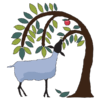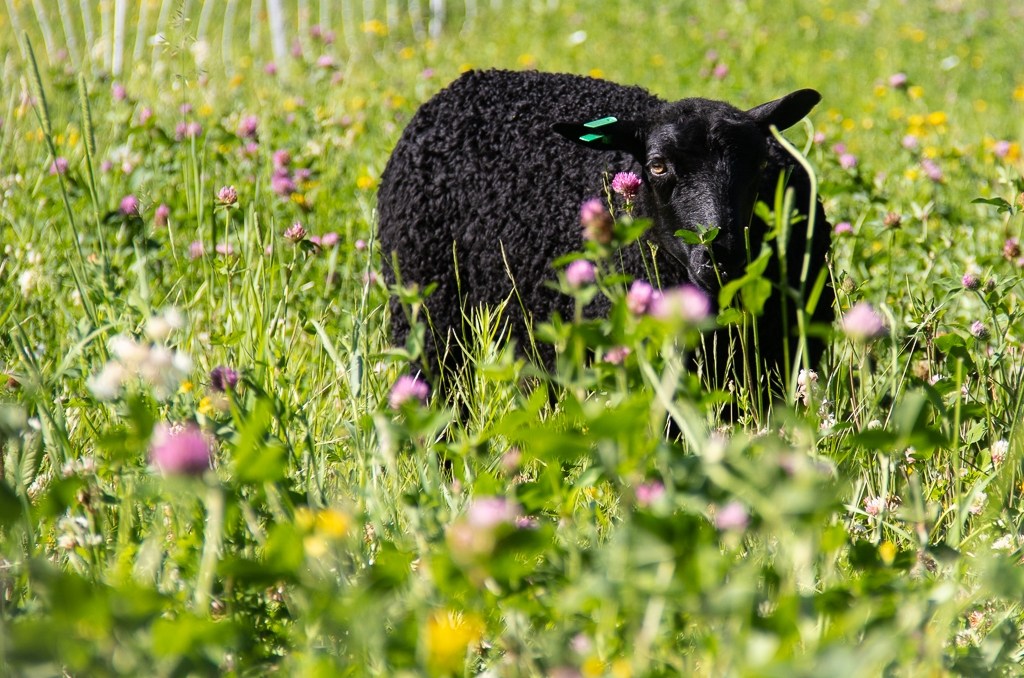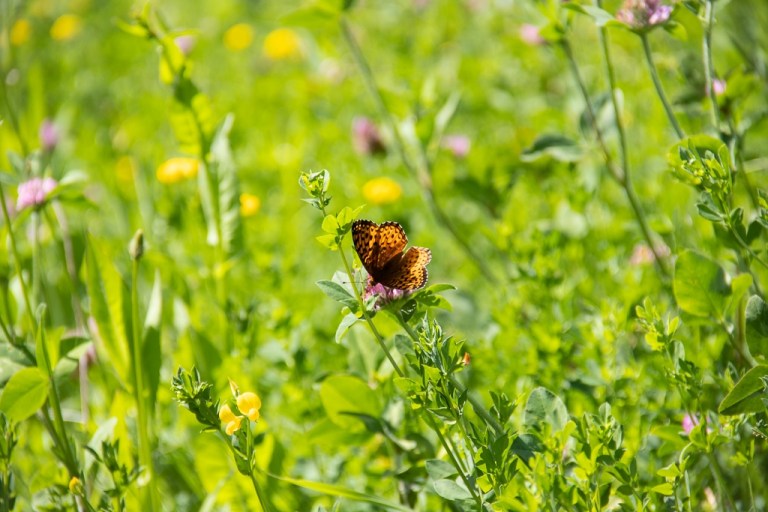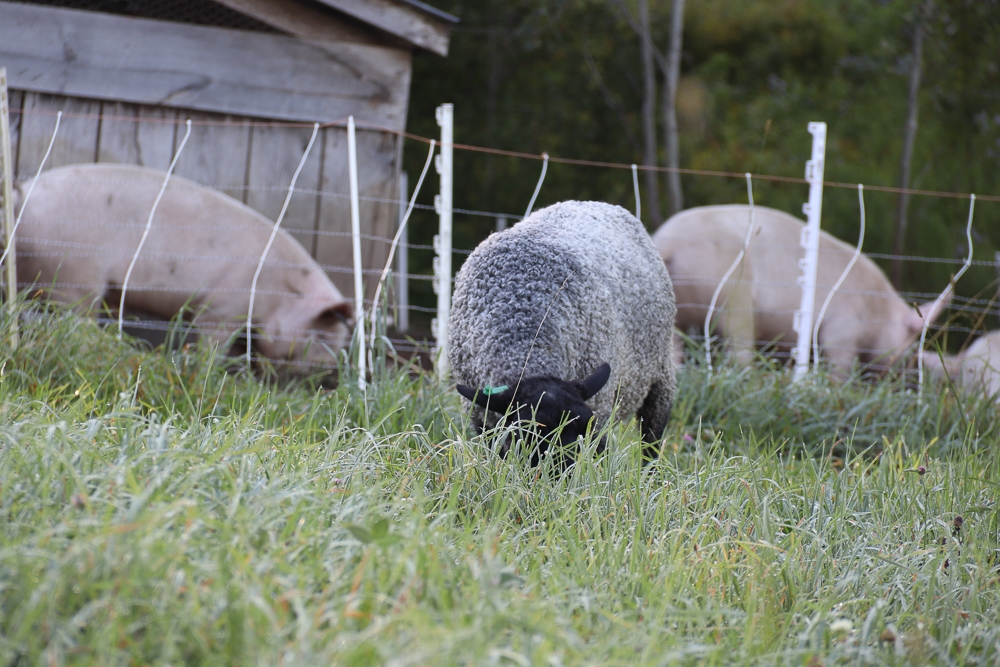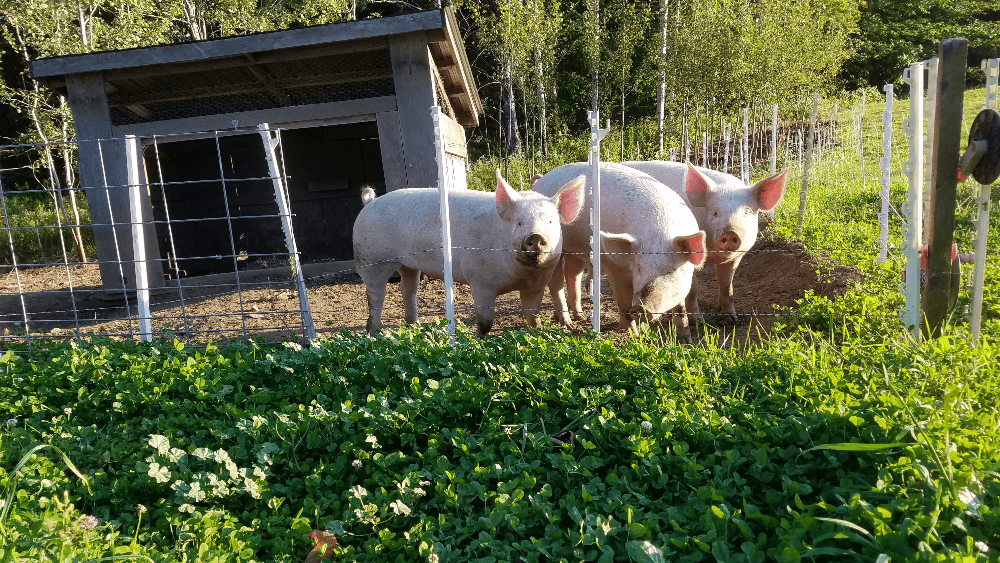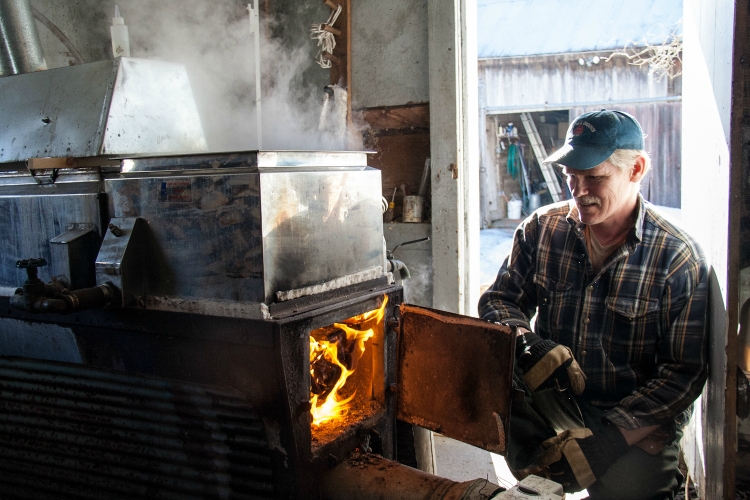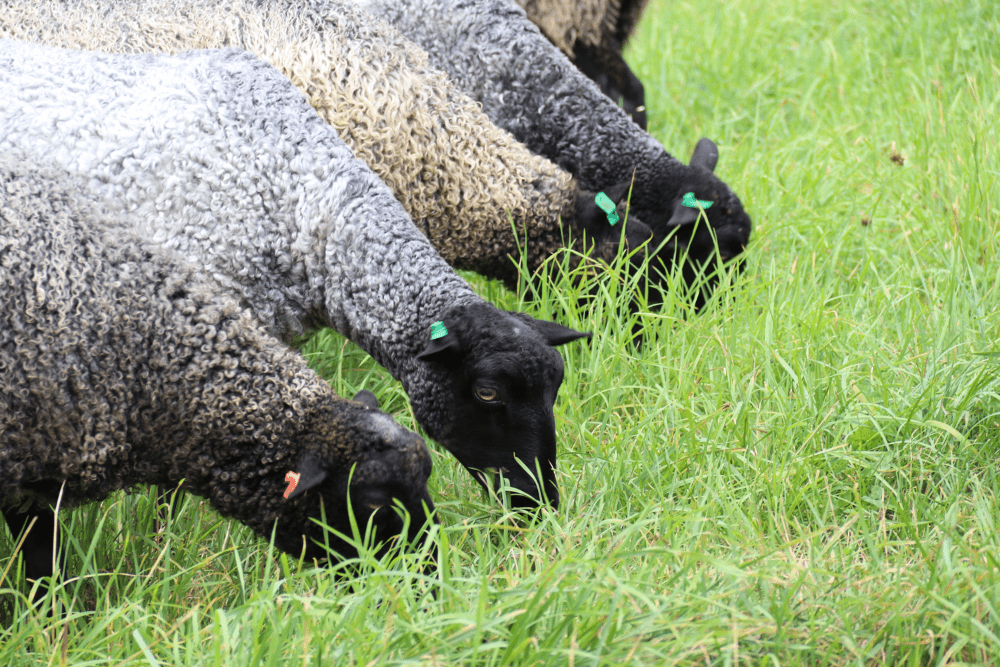Regenerative Farming
Vermont Grand View Farm is a diversified Gotland sheep farm and family homestead focusing on regenerative farming and grazing practices to restore and reclaim old pastures, rebuild the soil health, and return a diverse ecosystem to the land.
We use our livestock to replenish nutrient depleted soils, establish a wide variety of forage, and clear over grown pastures. These low impact methods improve our land, providing nutrient rich feed for our flock of sheep for optimal health.
Vermont’s Agricultural Community
We value our hillside farming community and recognize the many hands that feed and care for our flock. From the local feed store owner, the hay farmer, sheep shearer, friends and neighbors, our customers, and to the vets that we use, we recognize the important role they each play.
At Vermont Grand View Farm, our mission is to produce high quality wool products and healthy lambs, with a priority to conform to the Swedish breeding standards for Gotland sheep. We strive to raise our animals in the most natural and environmentally sustainable manner possible, relying on our local farm community to support our efforts. Through classes and farmstay experiences, we endeavor to educate and mentor individuals desiring to connect with farm life and fiber art.
Our Practices:
Through our 30 years of homesteading and farming, we have developed some very strong convictions about our quality of life and how we utilize our land, livestock, and local farming community. Each of these convictions provides a direct link to the quality of the products and experiences that we pass on to our customers.
Land – Following ecologically and environmentally sound methods of land management
- Pastures
-Using sheep to manage current pasture.
-Reclaiming old pastures through the use of pigs to till and fertilize the soil.
-Frost seeding to improve pasture nutritional quality. - Forests
-Maple sugaring through low-impact methods such as using buckets and gravity rather than pipelines and vacuum extraction.
-Utilizing dead wood and slab wood to fuel our evaporator.
Livestock – Supporting our animals’ health through natural means
- Sheep
-Choosing grass fed practices as the most economical way to feed animals.
-Improving plant diversity and naturally reducing parasites through rotational grazing.
-Utilizing homeopathy and natural nutritional support in livestock care (using as few medications as possible).
-Preventing disease from entering farm through biosecurity practices.
-Monitoring parasites through FAMACHA, fecal sampling, and breeding for parasite resistance.
Local Communities – Supporting and valuing our local farm community and customer base
- Agricultural Community
-Recognizing and relying on the inter-connected community of people involved in agriculture who all work together to support our farm–from the sheep shearer, hay farmer, and veterinarian to the local feed store, web designer, and our neighbor with a big tractor. - Customer Community
-Inviting our customers to learn and grow through farm tours and custom classes.
-Providing opportunities for guests to make connections to the agricultural community and to strengthen family and friendship bonds through overnight farmstays and retreats.
-Disseminating information and educating the public about fiber art and raising sheep through our farm blog, journal articles, attendance at sheep festivals, and participation in local and national associations.
-Offering mentoring to new shepherds.
